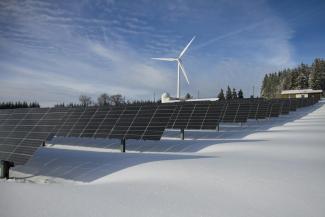Issues: Emerging technologies
Emerging technologies
SGR produces a range of resources on the issue of 'Emerging technologies'. This covers a wide range of new and controversial technologies such as hydraulic fracturing (fracking), artificial intelligence and autonomous systems, climate/ geo-engineering, genetically-modified organisms and synthetic biology, and nanotechnologies. An explicit concern is the adequate application of the precautionary principle, and the possible alternatives to emerging technologies, including 'appropriate' technology and non-technological solutions such economic, political or social change.









